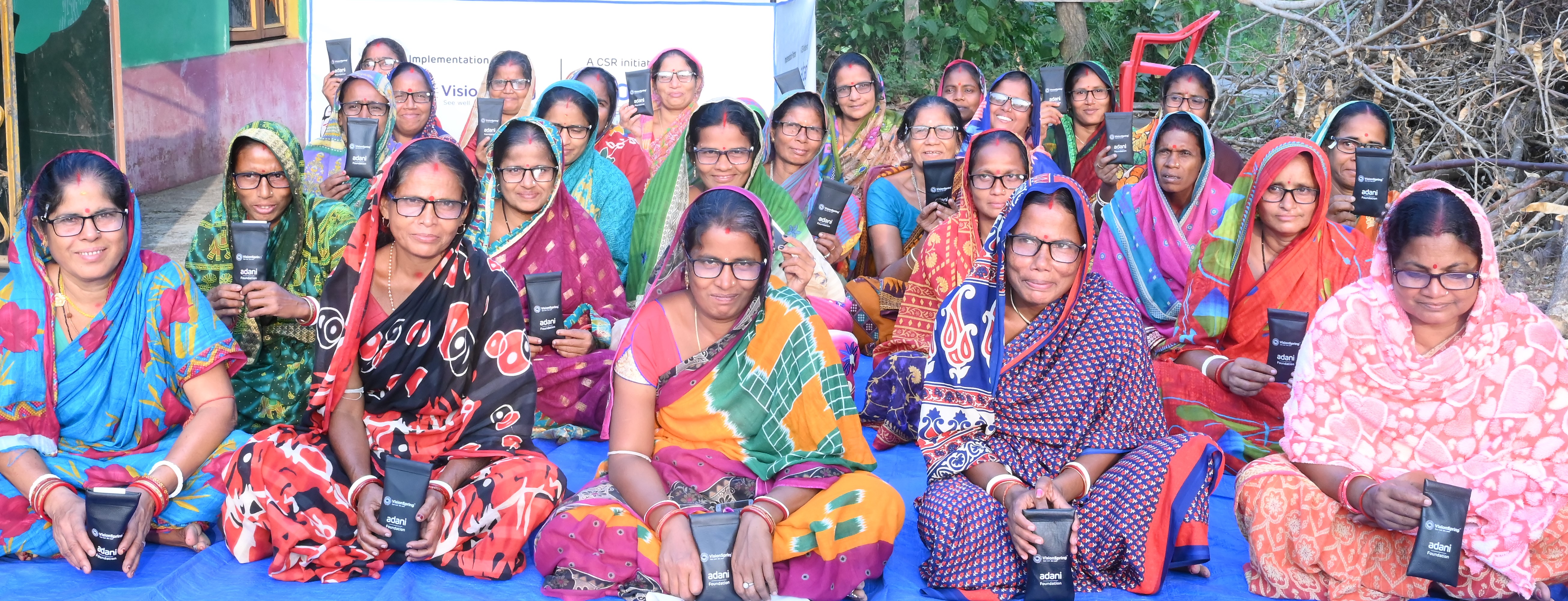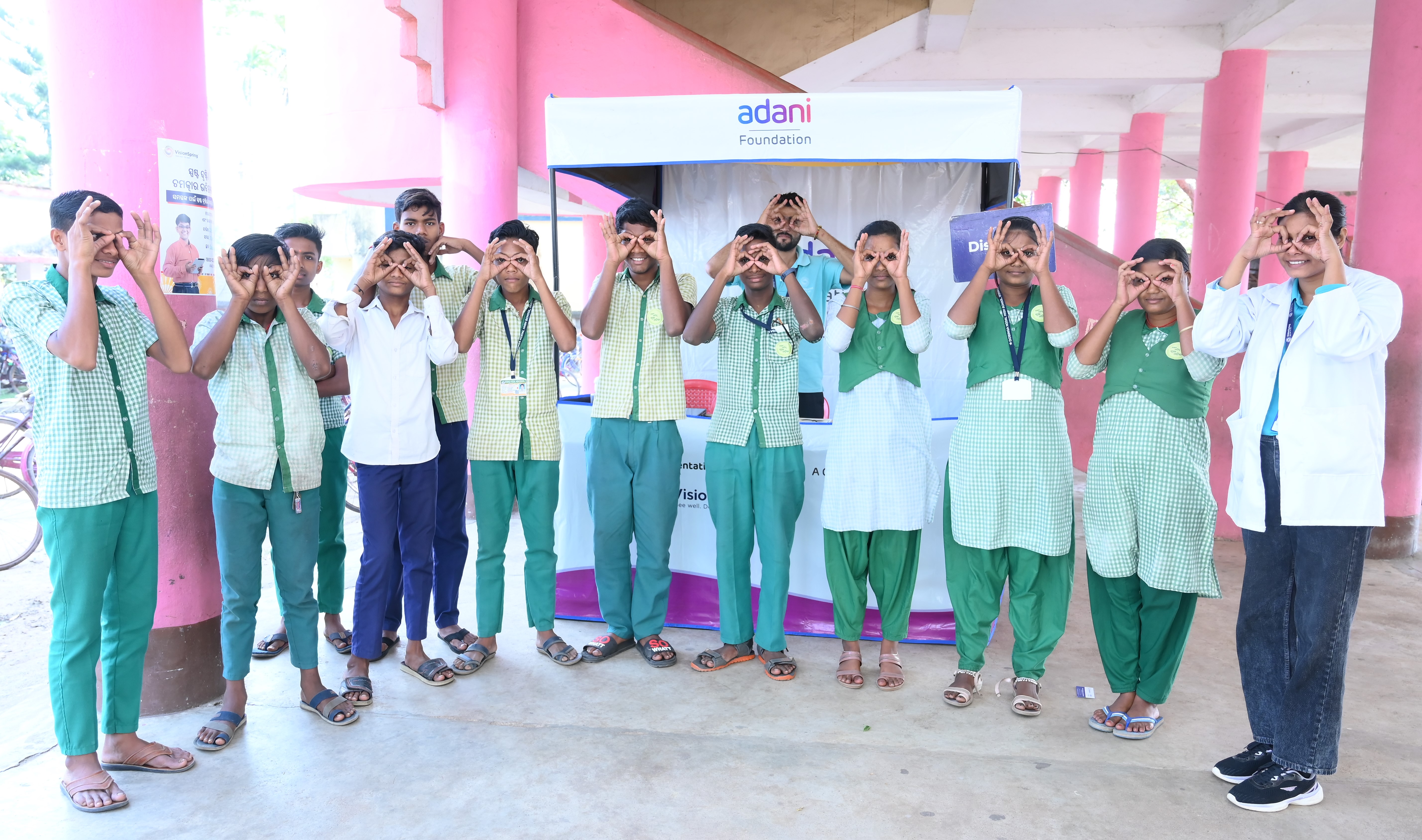
I have been associated with the Adani Foundation since October 2018, and my journey with the organization has been both enriching and rewarding. I feel privileged in contributing towards creating a lasting impact in the lives of people living at grassroots. On World Health Day, however, I find it imperative to share about a healthcare issue that goes largely unnoticed in rural India - vision care and eye health.
During my field visits and interactions with community members, I have often realized that access to eye care remains a significant challenge at grassroot level, where inadequate infrastructure, lack of awareness, and financial constraints impede the availability of essential vision-related services. The absence of timely and accurate eye care can severely affect an individuals' potential, especially school-going children, women, elderly citizens and drivers. I recall meeting a young girl in Hazira, Gujarat, who was struggling to read her textbook. Upon enquiring, her mother told me that the girl had never got her eyes checked. Her response indicated that awareness about vision care and access to eye health services was a distant dream for them.
This wasn't an isolated case. Across villages, I met women suffering from persistent headaches, elderly citizens who had given up reading, and truck drivers whose blurred vision made long driving challenging, thus posing serious risks. Simply put, eye health was not a priority, not due to indifference but because of lack of awareness and access.

When I delved into national health trends, it revealed some alarming details:
- An estimated 550 million people in India need vision correction, but many never get tested (WHO, 2022).
- Only 20% of rural Indians have ever undergone an eye exam (National Blindness and Visual Impairment Survey, 2019).
- Uncorrected refractive errors are a major cause of avoidable blindness, especially among children (Indian Journal of Ophthalmology, 2021).
The task was cut out – To take eye care to people at the grassroots.
We presented our findings to the senior management of the Foundation. The management, led by the visionary leadership of chairperson, Dr Priti Adani, readily agreed to the plan. Thus, we launched our Vision Care program in August 2024.
The program, which aligns with the Government of India's National Program for Control of Blindness & Visual Impairment (NPCBVI), aims at the early detection and prevention of eyesight-related problems. Its objectives are clear:
- To conduct free screenings of school-going children, women, elders, and high-risk groups like truck drivers.
- Provide free spectacles (as required) to those with refractive errors.
- Facilitate referrals and raise awareness about the importance of regular eye check-ups.

Since its inception, the program has made significant strides across sites – from Mundra and Hazira in Gujarat to Dhamra in Odisha and Kattupalli in Tamil Nadu. Between August 2024 and March 2025, we conducted more than 1,17,000 screenings across 11 states of India, reaching out to over 77,500 children, over 23,000 women, and more than 15,000 truck drivers. More than 30,000 free spectacles have been distributed.

During one of my recent field visits, one incident that particularly caught my attention was when an elderly woman, after receiving her first pair of glasses, exclaimed, "I can see my granddaughter’s face clearly after years! Thank you so much, beta." Stories like these reaffirm our commitment to drive purposeful change in society.
What started as a serious health concern for us has now become a key strategic commitment. By integrating vision care into our healthcare interventions, we're not just correcting eyesight and vision-related issues, but also significantly enhancing the overall well-being and quality of life of community members.

Through our Vision Care program, we are moving forward to expand screenings across more locations. We firmly believe that proper eye care is not a luxury for few, but a basic right for all. Together, we are striving to ensure clear vision for everyone — one pair of spectacles at a time.









